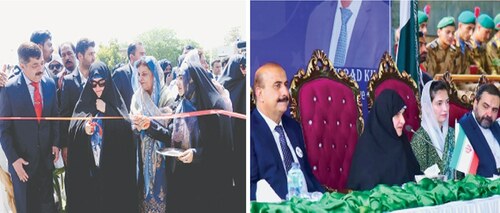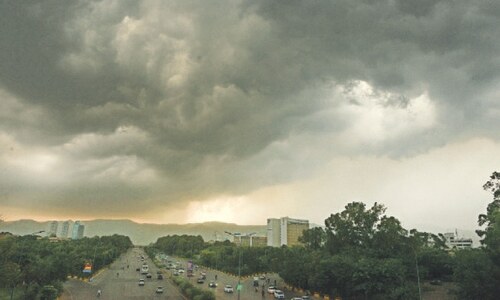Over the years, traders’ unions have come to be viewed as one of the capital’s strongest pressure groups, exerting their strength with both political and physical means. Formed to safeguard the rights of traders and business owners, their record isn’t exactly stainless when it comes to run-ins with the law.
In the past, traders have been involved in attacks on police officers, court bailiffs and judges, but have never been prosecuted to the full extent of the law for their misdeeds. Indeed, anyone who seeks to register a case against traders’ groups only invites trouble upon themselves.
The capital’s police have had an uneasy history with traders’ unions. These groups have, at times, come in handy for police and aided them in their investigations. The traders’ community also extends help to the police department, contributing to the modernisation of police stations and supporting personnel’s welfare.
But police often find themselves at the receiving end of protests by such bodies, which have ended with the suspension from duty of a number of sub-divisional officers or station house officers , who dared to register cases against these ‘roughs’.
It seems that things are cordial between the two sides, so long as the police are not asked to do their job and proceed against the illegal activities that the traders may be involved in.
In the late 2000s, traders were at the peak of their street power in the capital and were considered virtually ‘untouchable’. But since 2010, the city had not witnessed a major confrontation between law enforcers and traders, until quite recently.
On September 25, a court bailiff, on a judge’s orders, was sent to oversee the vacation of a shop in sector E-7’s Shaheen Market. The owner had moved the court to reacquire possession of the premises after the expiry of the lease agreement with the tenant.
However, they were thwarted when nearly two dozen thugs, led by the leader of a traders’ union from a nearby market arrived at the scene and assaulted the bailiff and the owner of the shop.
On the victims’ complaint, Kohsar police registered a case against the men on charges ranging from assault to deterring a public servant from discharging his duty, and criminal trespass.
The next day, the traders protested “police highhandedness” and blocked Aabpara Chowk. Accordingly, a case was registered against the traders’ union leader who had led the protest and the attack on the bailiff.
If this were anyone else, police would’ve had them under lock and key before the day was out. But thanks to their influence and street power, not only did the traders put pressure on senior police officials and secured the suspension of the concerned SHO, they also had a counter case registered against the bailiff, the shop owner and the policemen – on September 28 – alleging that they had been illegally detained and tortured at Kohsar police station.
Kohsar police are no strangers to the traders’ tactics. In October of 2009, an SHO was removed after police tried to enforce a Supreme Court order.
Under orders from the inspector general, who was acting on directives from the interior minister, Kohsar police arrested eight individuals, including two leaders of the Aabpara Market and the Jinnah Super Market traders’ union, on charges of manhandling a court bailiff and police personnel as they tried to vacate two shops on court orders.
Earlier that year, in May, police registered a criminal case against 42 traders who attacked and laid siege to the city courts.
The case was registered in response to a complaint lodged by civil judge Ovais Khan Niazi. The judge held that a group of traders had besieged the district and session courts at F-8 Markaz, damaged government property and chanted slogans against judges and the justice system, all because he ordered that a shop in G-10/1 be vacated.
Published in Dawn, October 9th, 2014














































Dear visitor, the comments section is undergoing an overhaul and will return soon.